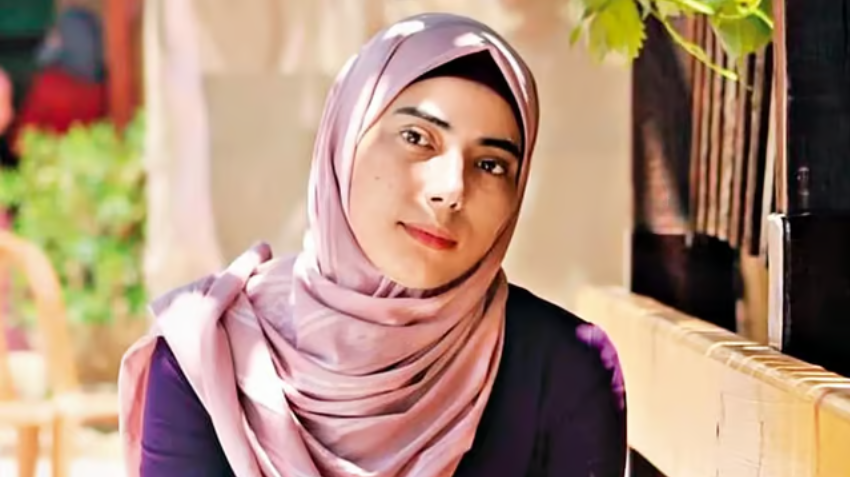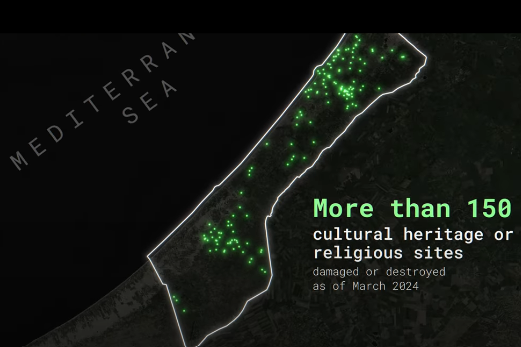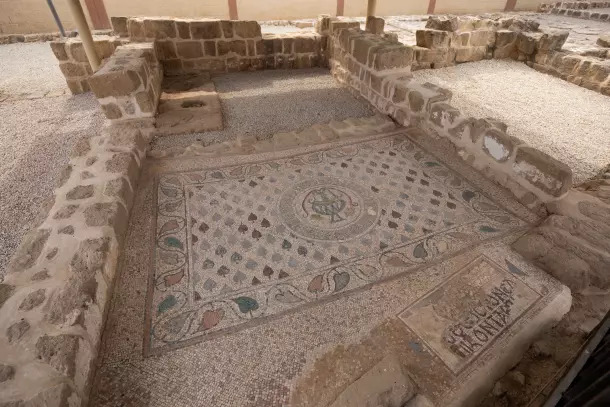A famed writer, Hiba Abu Nada, a poet who wrote an award-winning novel dealing with the issues of injustice, was killed on the 20th of October 2023 when an Israeli missile hit her aunt’s home in Gaza City. Her final poem, written 10 days before her death, read:
I grant you refuge in knowing
That the dust will clear,
And they who fell in love and died together
Will one day laugh.
Since the beginning of the war last year, statistics show that more than 40,000 Palestinians and 1,706 Israeli civilians have lost their lives. Among them are cultural professionals and journalists caught in the ongoing atrocities.
But, while the attack on press safety and freedom has been a fundamental discussion point for the News Media, less attention has been given to those cultural and artistic practitioners lost in the war.
Echoing the tragic loss to our shared human story, artistic collectives and cultural organisations across Europe have been vocal in the need for safeguarding artistic and cultural histories, presents, and futures.
Culture Action Europe has asserted solidarity with people impacted by atrocities in Gaza.
Marking one-year since October 7th, members of the CAE network at the 2024 CAE members’ forum in Malmö ‘Beyond the Obvious’ were vocal about their condemnation of the atrocities unfolding in Gaza and Lebanon.
They also condemned the attack on Israelis on 7th of November 2023 by Hamas militants. Since the unfolding events have weighed heavily on global consciousness, according to the CAE, the organisation wants to stand in solidarity with the people impacted by the war.

Hiba Kamal Abu Nada (Arabic: هبة كمال أبو ندى; 24 June 1991 – 20 October 2023)
As part of its advocacy work, the network released a call for cultural organisations to contribute to a repository of initiatives and statements to support the people of Gaza and share information concerning the ongoing attacks.
This is especially important towards safeguarding and protecting the safety and freedom of cultural workers.
Culture Action Europe noted in a statement (full statement below) that
‘when artistic freedom is under threat in any way, the network has to be outspoken in support and condemnation.’
On the Move, an organisation devoted to supporting the mobility of artists across and inside borders, has also been vocal in calling for an immediate ceasefire, underlying that all governments should identify and condemn war crimes, including genocide, and work towards creating justice and equality for all.
The organisation released a full statement, which CAE expressed full support of.
“The continuing devastation in Gaza and the failure of global civil society and international powers to halt the carnage, and we believe it remains essential for those in the cultural sector to continue to voice their solidarity with artists, cultural actors, and all people impacted.” the statement reads.
ELIA, an organisation devoted to safeguarding access to arts education, is concerned with the impact of the war and the assault on Gaza on the creative educational industry.
The group has set up an online repository of initiatives to share information about this impact and examples of good practice.
"ELIA condemns in the strongest terms all violations of human rights and international law reported in Palestine and Israel. We join calls for an immediate ceasefire in Gaza" a statement by May 31st reads.
ELIAS repository, usually used as a toolkit for educators, is specifically for the dissemination of knowledge concerning how ‘higher arts education stakeholders have responded and continue to respond to the humanitarian crisis in Gaza. It also addresses the violations of human rights and international law in Palestine and Israel.’
The Loss of Shared Human History
Solidarity moves across the board, as the destruction of Gaza and its population concerns all shared human culture and artistic mobility.
The war has represented a full-scale threat to a small and heavily populated area, that plays host to a number of heritage sites important for the history of humanity, including universities, libraries, museums, and archives.
Satellite research by UNESCO has attempted to map the scale of the damage. It states, ‘as of 17 September 2024, out of the 120 sites that UNESCO has been able to assess through satellite imagery, 69 sites have been damaged since 7 October 2023.
These include 10 religious sites, 43 buildings of historical and/or artistic interest, 2 repositories of movable cultural property, 6 monuments, 1 museum, and 7 archaeological sites.’
 The cultural heritage protection organisation published a full list of damaged or destroyed monuments and artefacts.
The cultural heritage protection organisation published a full list of damaged or destroyed monuments and artefacts.
With nearly 60% of buildings destroyed in Gaza, every single university that once stood on the land has gone down in the destruction.
Alongside the report of UNESCO, which shows the wide extent of the damage, some have noted that this equates to a 'cultural genocide'.
Maryam Shah, writer and scholar of Peace and Conflict studies, writes, 'physical destruction of cultural sites in Gaza has severe ramifications for the study and production of Palestinian historical narratives.
Through the eradication of universities and archives, Palestinians have lost centuries-old manuscripts and other invaluable resources for understanding Gaza's cultural evolution and history.'
It is important now to take the lid off of the silence and speak up for the irreparable damages done to the people, the culture, and the art of Gaza and our shared human story.
Though poetry may live on through the destruction, the poetics of the past made material in our monuments cannot be rebuilt, and the creative worlds destroyed when artists' lives are lost cannot be undone. It's better to join in solidarity and attempt to stop these atrocities now.
CAE’s full statement
Here is the full statement by Culture Action Europe:
‘The Culture Action Europe (CAE) board and team have been discussing in depth the question of how to react to the Israel-Palestine war. Both the brutal attack on Israel on 7 October 2023 as well as the unprecedented devastation that has followed in Gaza and recently in Lebanon. When Russia began its full-scale invasion of Ukraine in February 2022 CAE issued a statement fairly promptly.
However, the network has been silent in the public realm in respect of other wars and subsequent humanitarian catastrophes. The war in Israel-Palestine has challenged this silence.
Since then the internal conversations have carried on, led by the determination to act in the light of ever-increasing human atrocities, notwithstanding the feeling that whatever we did would somehow be perceived as performative or limited or outside the scope of the CAE mandate.
During the CAE Members’ Forum in Malmö members were clear and outspoken and defined the need to be vocal, whenever artistic freedom of our community, our members or potential members and their communities, are under threat in whatever way.
Reference was made to statements, such as the one published by On the Move, which CAE supports in its condemnation of
“the continuing devastation in Gaza and the failure of global civil society and international powers to halt the carnage, and we believe it remains essential for those in the cultural sector to continue to voice their solidarity with artists, cultural actors, and all people impacted.”
The statement of On the Move is only one of the many statements and actions deployed by CAE members.
As a network of networks, organisations, and individuals, defining itself as representing the ´diversity´ of the cultural ecosystem in Europe, CAE wants to demonstrate how that ecosystem has responded and will continue to respond.
Acknowledging a similar action taken by ELIA, we invite all CAE members to contribute to an Online Repository of responses to the Gaza war, with examples of how they have responded and continue to respond to the humanitarian crisis in Gaza and the violations of human rights and international law in Palestine and Israel.
We hope this collection will help to form a comprehensive picture of how this conflict and humanitarian crisis is impacting Cultural and Creative Sectors in Europe and beyond.
Through this knowledge base, we hope to facilitate learning from each other's statements, research and activities in support of those artists, arts organisations, and citizens that suffer from the war.’
Photo Credit: ©UNESCO Office in Ramallah










 The cultural heritage protection organisation published a full list of damaged or destroyed monuments and artefacts.
The cultural heritage protection organisation published a full list of damaged or destroyed monuments and artefacts.